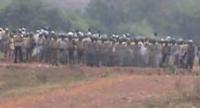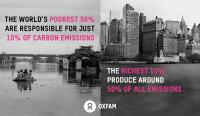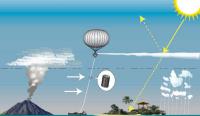Most politicians and economists consider economic growth as the solution for all sorts of crises like unemployment, the debt crisis or global poverty. But since the Club of Rome report "The Limits to Growth", published in 1972, there are doubts whether the economy can go on growing without destroying its own foundations. Humankind is already consuming resources as if there were 1.5 planets available. Climate change and the destruction of biodiversity are accelerating. Tim Jackson, advisor to the British government and author of the book "Prosperity without Growth" explains why technology alone can't resolve the dilemma.
To get out of the growth trap we need a fundamental transformation of our economy and society, says Tim Jackson, author of "Prosperity without Growth". Financial markets, driven by excessive returns on investment, and a culture of consumerism build up "perverse incentive structures" for even more consumption and exploitation of resources. To counteract this we need more than volontary ethical investment. We need a change in ownership structures so that the economy serves the common good.
India has the highest growth rates worldwide along with China. But with growth poverty and environmental destruction are also increasing, says the renowned civil rights activist and ecologist Vandana Shiva on Kontext TV. Shiva received the Right Livelihood Award (better known as the "Alternative Nobel Price") in 1993. The biggest part of the profits would go into the pockets of the nearly one hundred billionaires of India. Patenting seeds has bestowed the U.S. agro-biotech corporation Monsanto high growth rates and at the same time driven millions of peasants into a debt trap. A quater million farmers committed suicide in the past ten years. At the same time climate havoc is happening in India. Droughts and floodings are destroying the livelihoods of farmers.
Worldwide hunger for resources drives transnational corporations to access iron ore, aluminium and uran deposits in the Indian states of Chattisgarh and Orissa. Numerous indigenous tribes (Advasi) live there. They resist the destruction of their livelihood. As a result of that they are drawn into a civil war between government forces, who secure access to resources, and Maoists.









